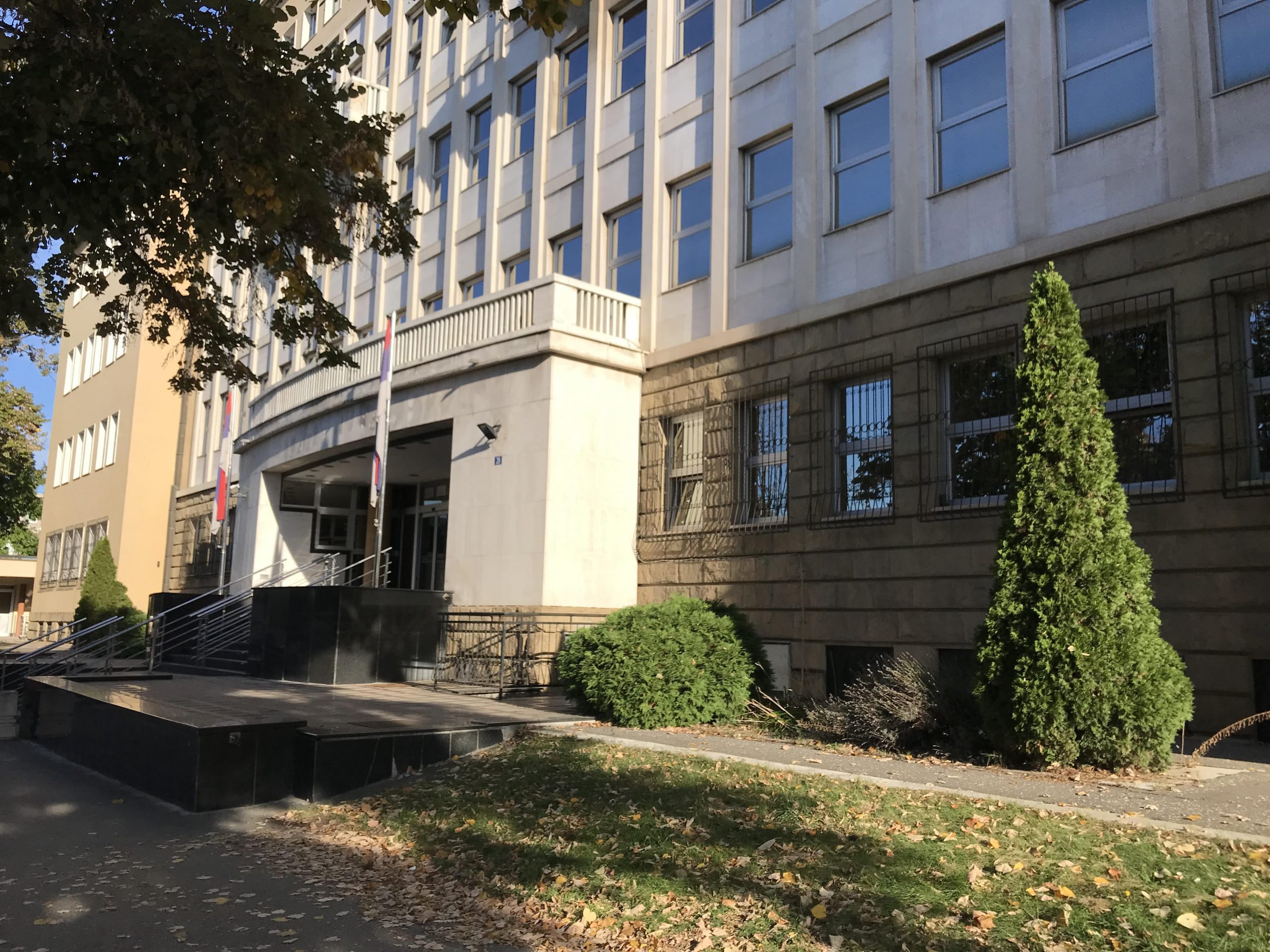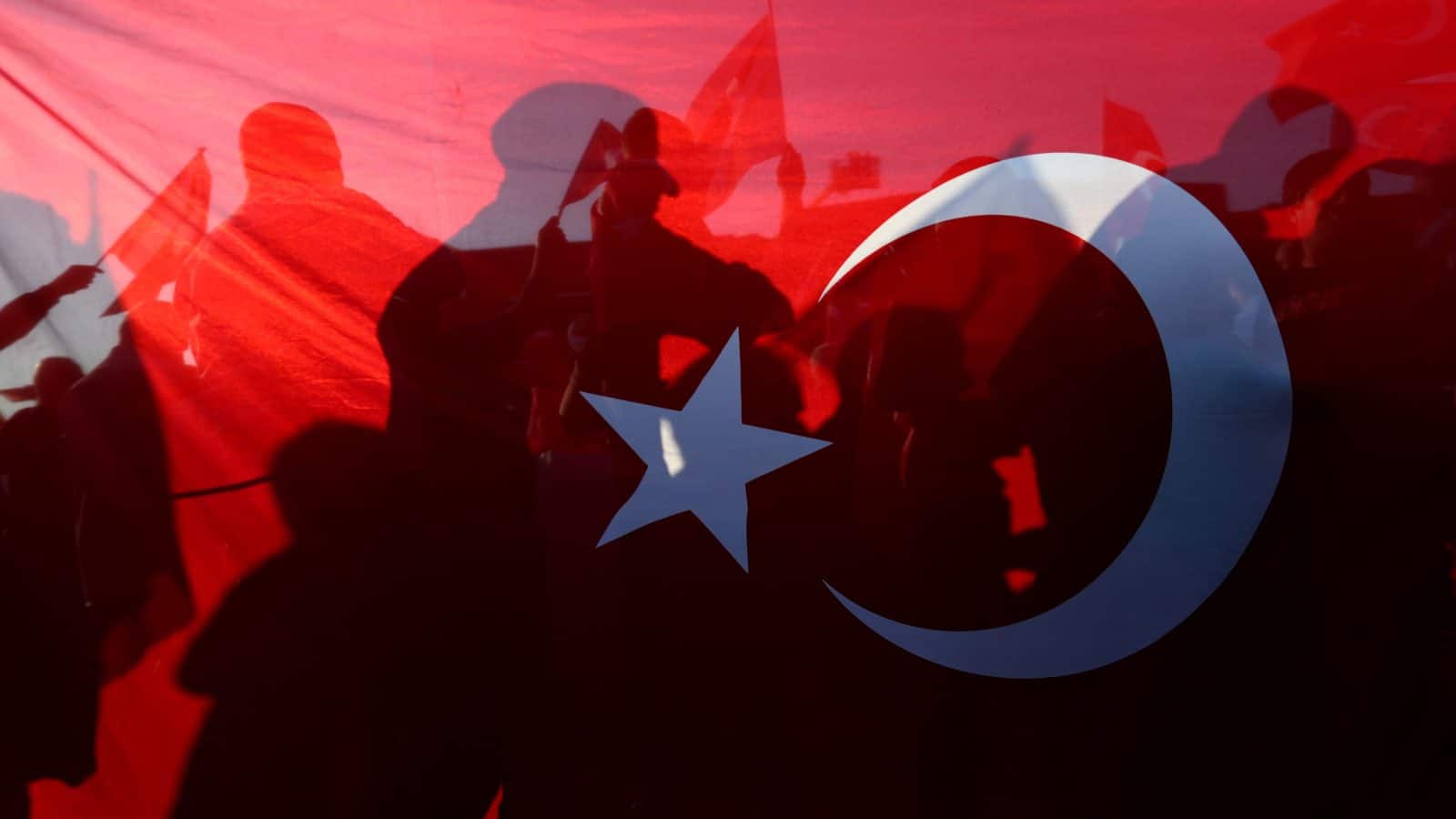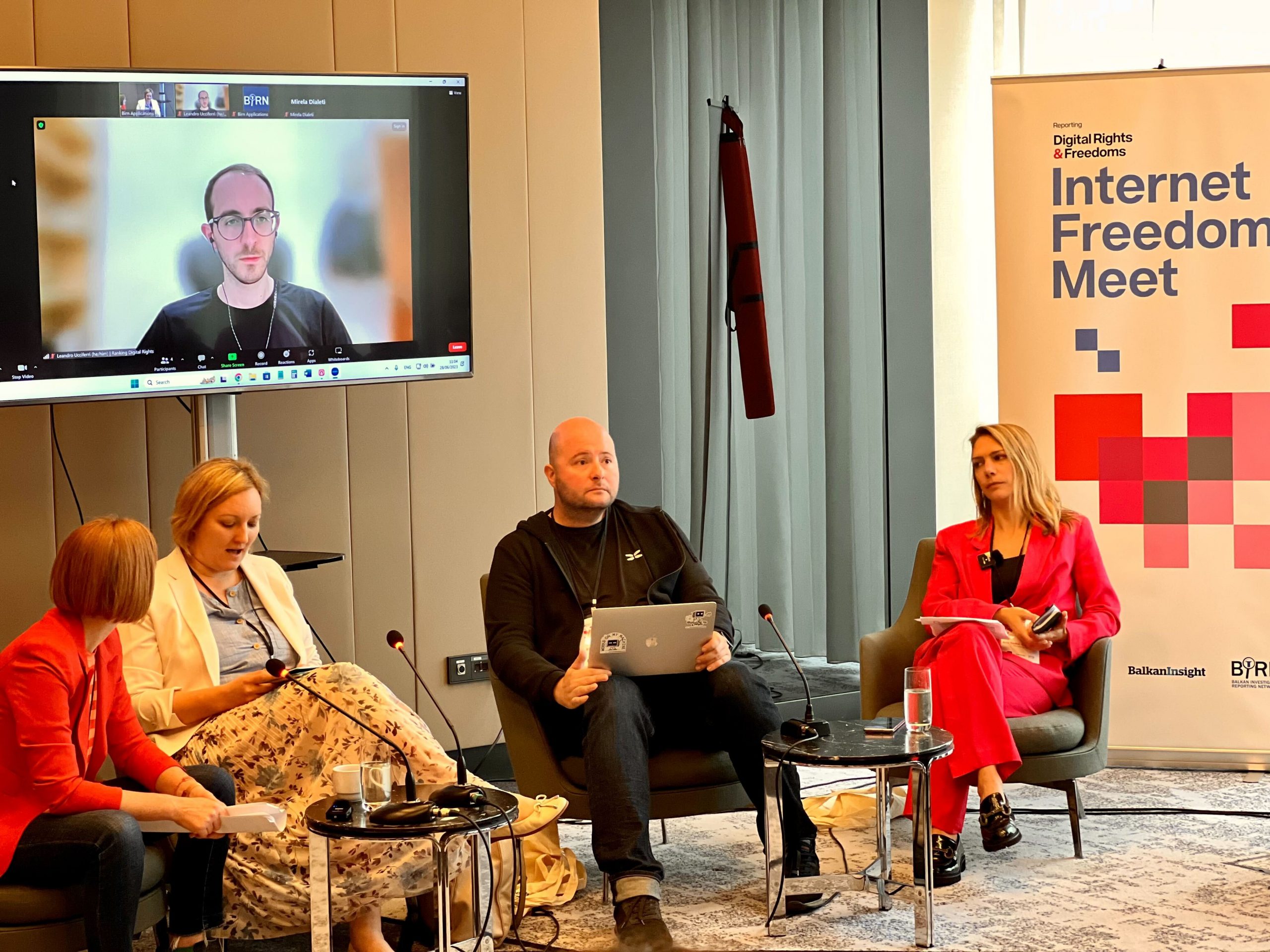On the third day of the Internet Freedom Meeting in Belgrade, BIRN presented its months-long research report titled “Hidden in Plain Sight: Telco Accountability Research Using Ranking Digital Rights Methodology”.
The research showed that the customers of telecom companies in five Balkan countries and Moldova face challenges in making sure their rights to privacy are respected.
The challenges range from language barriers that disadvantage national minorities to a lack of transparency or clarity with regards to company services and secrecy surrounding how and when telecom providers share user data with public authorities.
Such shortcomings, the research warns, pose a significant risk to the privacy rights of consumers in the countries concerned – Albania, Bosnia and Herzegovina, Kosovo, North Macedonia, Serbia and Moldova.
Applying methodology developed by Ranking Digital Rights, an independent research programme at the Washington-based New America policy think tank, BIRN analysed the practices of the two biggest telecom companies in each country: Albtelecom and Vodafone Albania in Albania; BH Telecom and Telekom Srpske in Bosnia and Herzegovina; Ipko and Vala in Kosovo; A1 and T-Mobile in North Macedonia; Moldcell and Orange Moldova in Moldova; and Telekom Srbija and Yettel in Serbia. A proactive approach ranked only what’s published on the companies’ websites.
The research found that telecom companies in Bosnia, Kosovo, Moldova, and North Macedonia face a common challenge: language barriers and the comprehensibility of important documents outlining the rights and responsibilities of both the telecom company and the customer.
After a presentation by Dragana Zarkovic Obradovic, BIRN Serbia country director, panelists discussed the main findings of the report.
All the panelists agreed transparency was a crucial requirement for telecommunication companies.
Tanja Maksic, BIRN Serbia’s programme coordinator, stated: “ These are not only business profit-oriented companies, but also companies that provide necessary services like internet, TV, e-banking, etc.”
She highlighted that newly formed companies cannot be compared in this context, pointing to the disparity between the power held by the company and the power of the users.
According to her, these companies prioritize protecting their business interests over the welfare of the users.
Bojan Stojkovski, a journalist who worked on the research, emphasized the importance of considering the user’s perspective and the potential misuse of data. “You must understand the value of the data you willingly share and its associated costs,” he said.
Ana Toskic Cvetinovic, Partners Serbia’s executive director, spoke about personal data as a trade commodity.
She stressed the significance of reading and comprehending privacy documents to be aware of one’s rights and the terms of use. Toskic Cvetinovic pointed out that these documents are often vague, complex, and make it difficult to grasp the main points, particularly regarding data processing. She emphasized the need for clear specification of the purpose, type, and amount of data collected.
The decision-making process for choosing services involves factors such as price, quality and personal values, including political affiliation. Toskic Cvetinovic stated that due to a lack of trust in the state’s handling of personal data, users tend to focus on these factors rather than the specifics of the data collected.
Toskic Cvetinovic further commented on the telecom market’s decline and limited growth potential. “The sale of data and the various types of data involved, such as metadata, health-related information, and website visitation records are a valuable asset,” she noted.
In the context of mergers, she emphasized the need for companies to inform users about policy changes.
When asked about competition in the market, Toskic Cvetinovic expressed the opinion that companies often are unwilling to compete. Users are also often presented with a choice of either providing their data or not signing the contract.
Read the report here: Some Telco Users in Balkans, Moldova, in Dark over Rights
Read the main findings here: Hidden in Plain Sight: Telco Accountability Research Using Ranking Digital Rights Methodology















